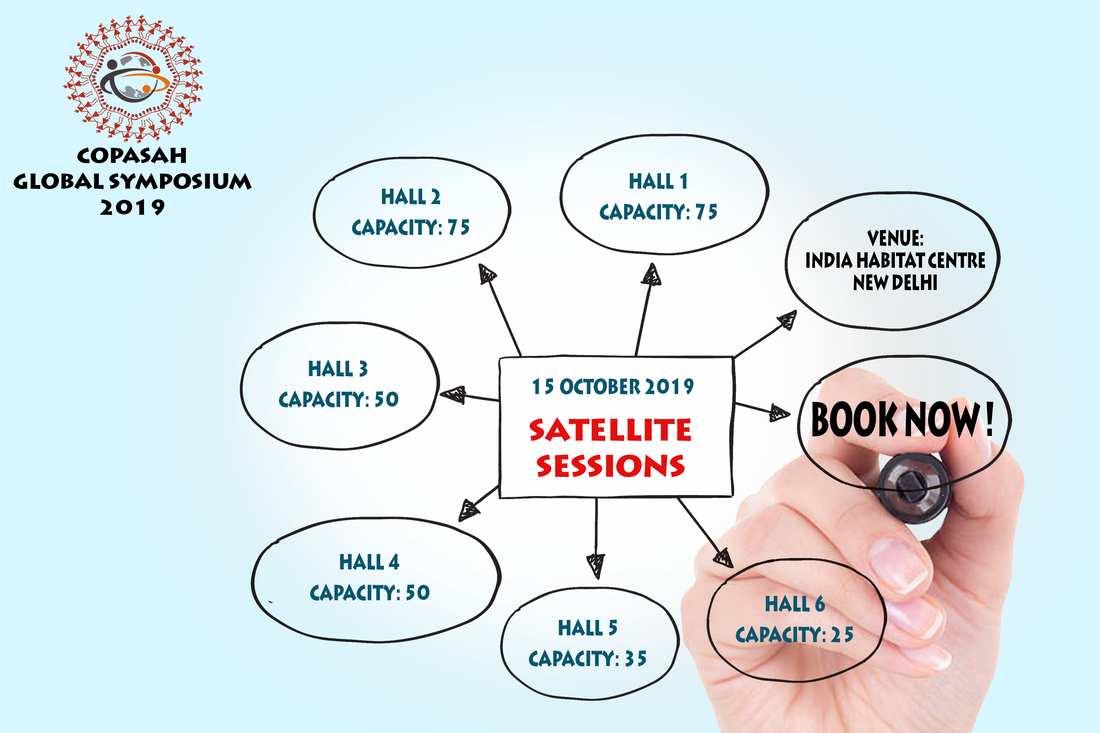
|
|
THEMES
-:Leaving No One Behind: Strengthening Community Centred Health Systems for Achieving Sustainable Development Goals:-
-:Leaving No One Behind: Strengthening Community Centred Health Systems for Achieving Sustainable Development Goals:-
Sub-themes: The overall contents of the Symposium will see deliberations through different intersectoral and intersectional thematic axis including the broad set of themes of Community Action, Indigenous People, Reproductive and Sexual Health, Private Health Sector and Health Care Workers
Perspectives behind Themes of CoPGS2019: Citizenship, Governance and Accountability in Health
Perspectives behind Themes of CoPGS2019: Citizenship, Governance and Accountability in Health
|
The health systems in developing nations include the public health systems as well as a whole array of private health care providers. The public health systems, which are constitutionally mandated to protect and promote wellbeing of communities are increasingly rendered fragile, weak, fragmented and shrunk. Alongside, the burgeoning private health care system has set itself progressively on the path of commercialization and corporatization, resisting its accountability neither to the constitutional principles nor to patients. Meanwhile, the accountability to the health and wellbeing of citizens and communities has suffered a setback due to State's evasion of responsibility and the overpowering yet unaccountable presence of the non-state actors in health and health care policy and provisioning. The global and national actors from both the health and non-health sector actors who are operating in this field have contributed to making accountability chains more complex. Such accountability deficits and complexities are created in the upstream and global alignments of private and non-state actors that wield undue influence on global health governance.
|
In addition, the accountability discourse itself is fret with its own challenges and limitations. The discourses of accountability have been delinked from the policy contexts and the experiences of the community. Some of the predominant approaches are overwhelmingly expert led and instrumental and narrow in their outlook as a tool (ticking a box) or a digital drive for accountability with an overemphasis on efficiency and outcomes simultaneously undermining transformative potential perspectives of equity. It also undermines the centrality of community and the understanding of the power imbalances that the overarching policy processes create. Such limited, instrumental and reductionist accountability perspectives have further exacerbated the alienation of communities and tend to absolve global actors of their influence on the continuing indignities and violations of rights that the communities are confronted with.
COPASAH has positioned health, wellbeing and dignity for all and community's claim for human right to health at the core of social accountability discourse. Such a discourse is also located in the overarching framework of citizenship, governance and accountability in health. In the same vein, the understanding of health itself is broadened to include wellbeing, dignity and social justice, within which health care forms a significant part. It is driven by the belief in and engagement with the transformative potential of community's power in demanding accountability from the state and non-state actors and for realizing such a right. Such understanding of accountability is a process of changing power equations of communities with various actors and national-global policy processes, most importantly the state which is vested with the constitutional obligation to ensure condition for communities be healthy. Realizing that such a process of social accountability is only possible in a strong bond of community to global solidarity, the community of practitioners of COPASAH encompasses various actors ranging from people-oriented community leaders, organic intellectuals and institutions committed to such an equitable vision of society.
COPASAH has positioned health, wellbeing and dignity for all and community's claim for human right to health at the core of social accountability discourse. Such a discourse is also located in the overarching framework of citizenship, governance and accountability in health. In the same vein, the understanding of health itself is broadened to include wellbeing, dignity and social justice, within which health care forms a significant part. It is driven by the belief in and engagement with the transformative potential of community's power in demanding accountability from the state and non-state actors and for realizing such a right. Such understanding of accountability is a process of changing power equations of communities with various actors and national-global policy processes, most importantly the state which is vested with the constitutional obligation to ensure condition for communities be healthy. Realizing that such a process of social accountability is only possible in a strong bond of community to global solidarity, the community of practitioners of COPASAH encompasses various actors ranging from people-oriented community leaders, organic intellectuals and institutions committed to such an equitable vision of society.


